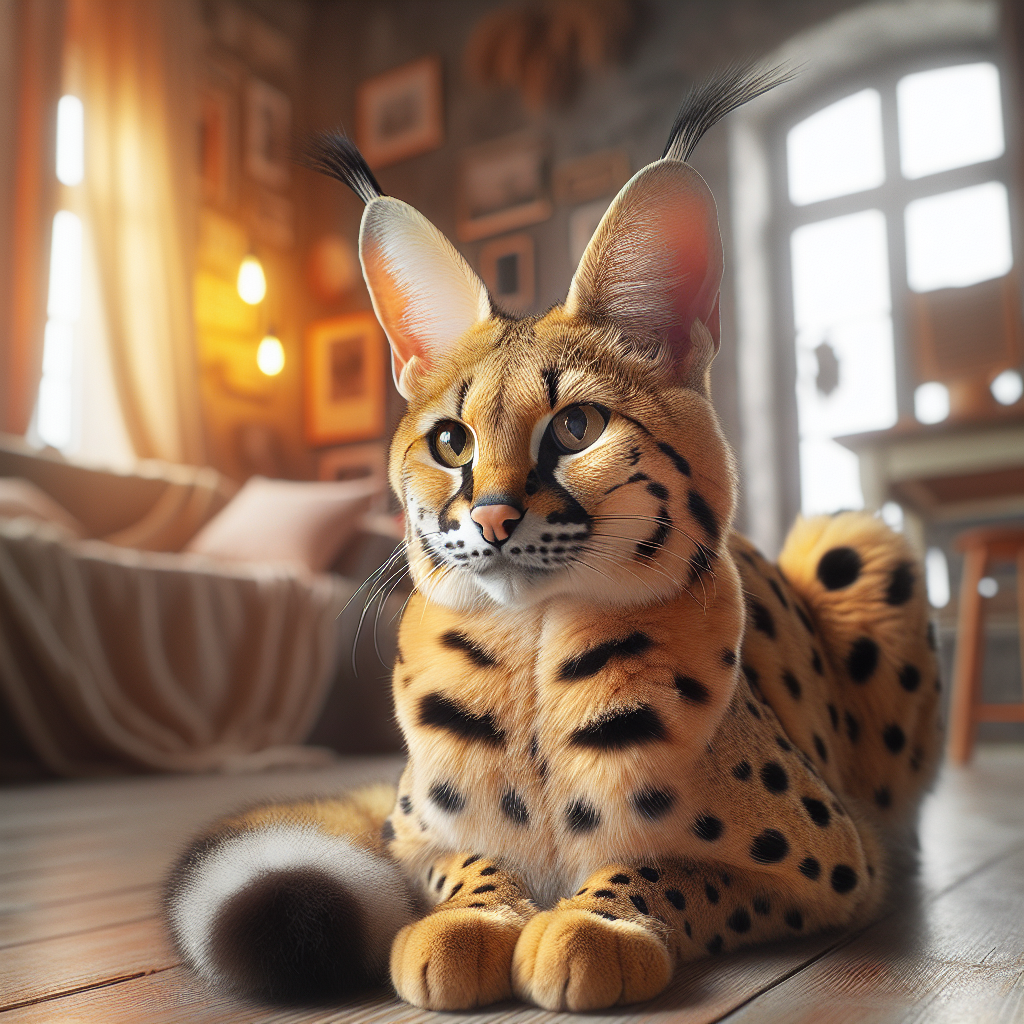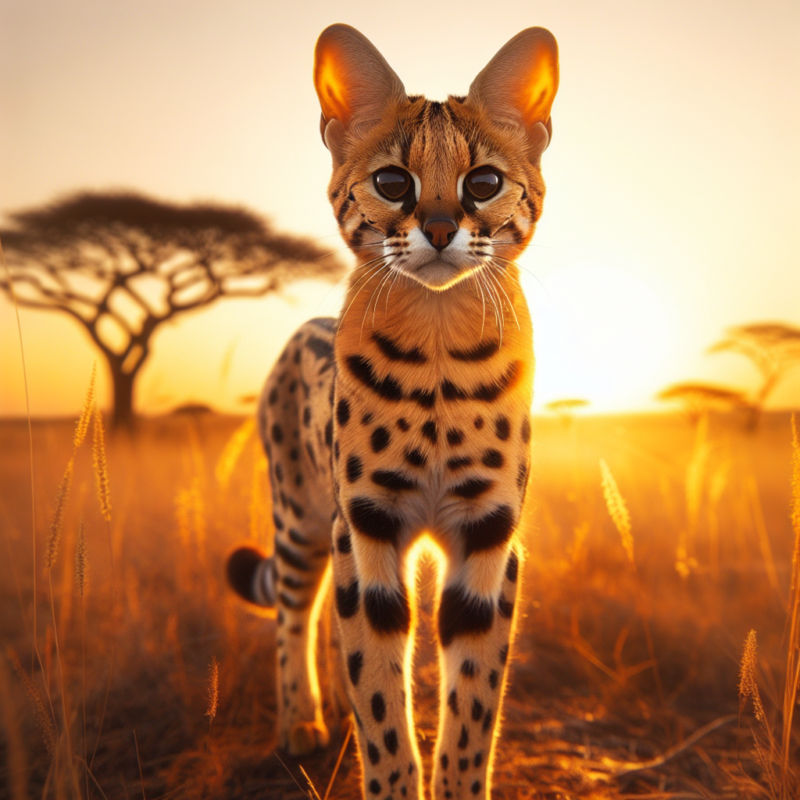About Savannah Kittens
f1 savannah cat
f1 savannah cat
The History and Characteristics of the F1 Savannah Cat
The F1 Savannah cat is a unique and exotic breed that has gained popularity in recent years. With its striking appearance and wild ancestry, this cat has captured the hearts of many cat lovers. In this article, we will delve into the history and characteristics of the F1 Savannah cat, shedding light on what makes this breed so special.
The F1 Savannah cat is a hybrid breed, resulting from the crossbreeding of a domestic cat and a wild African Serval. This first-generation hybrid is known as an F1, or first filial, Savannah cat. The breed was first developed in the 1980s by a breeder named Judee Frank, who was fascinated by the beauty and grace of the Serval. She wanted to create a domestic cat with the same exotic appearance, and thus, the F1 Savannah cat was born. One of the most distinctive characteristics of the F1 Savannah cat is its size. These cats can grow to be quite large, with males reaching up to 20 pounds and females up to 15 pounds.
Ancestors of Savannah cat
This is due to their Serval ancestry, as Servals are one of the largest species of wild cats. The F1 Savannah cat also has long legs, giving it a tall and elegant appearance. This, combined with their spotted coat, gives them a striking resemblance to their wild ancestors. In addition to their size and appearance, the F1 Savannah cat also has a unique personality. They are known to be highly intelligent and curious, traits inherited from their Serval ancestors. They are also very active and require plenty of mental and physical stimulation. This makes them a great companion for those who are looking for an energetic and playful cat. However, their high energy levels can also make them a handful for some owners, so it is important to be prepared for their active nature.
Another interesting aspect of the F1 Savannah cat is their coat. They have a short, soft coat with a spotted pattern, similar to that of a Serval. The spots can come in various colors, including brown, silver, and gold. The coat also has a shimmering quality, giving it a luxurious appearance. However, unlike their wild ancestors, F1 Savannah cats do not have the same grooming needs. Their coat is low maintenance and only requires occasional brushing to keep it looking its best.
Caring for Your F1 Savannah Cat: Diet, Exercise, and Grooming Tips

The F1 Savannah cat is a unique and exotic breed that has gained popularity in recent years. These cats are a hybrid between a domestic cat and a wild African Serval, resulting in a stunning and intelligent feline. However, with their wild ancestry, F1 Savannah cats require special care and attention to ensure their health and well-being. In this article, we will discuss the essential aspects of caring for your F1 Savannah cat, including their diet, exercise, and grooming needs.
Diet is a crucial factor in maintaining the health of your F1 Savannah cat. These cats have a high metabolism and require a diet that is rich in protein and low in carbohydrates. It is recommended to feed them a high-quality, grain-free dry food that is specifically formulated for active and large breed cats. Additionally, incorporating raw or cooked meat into their diet can provide them with the necessary protein and nutrients. It is essential to consult with your veterinarian to determine the appropriate portion size and feeding schedule for your F1 Savannah cat.
In addition to a proper diet, exercise is vital for the physical and mental well-being of your F1 Savannah cat. These cats are highly active and require plenty of space to run, jump, and play. It is recommended to provide them with a large, multi-level cat tree or a designated play area where they can climb and explore. Interactive toys, such as feather wands or laser pointers, can also help keep them mentally stimulated and physically active. Regular playtime with their owners is also essential for bonding and maintaining a healthy relationship with these intelligent and social cats.
Grooming your F1 Savannah kitten
Grooming is another crucial aspect of caring for your F1 Savannah cat. These cats have a short, dense coat that requires minimal grooming. However, it is recommended to brush them at least once a week to remove any loose hair and prevent matting. Additionally, regular nail trimming and ear cleaning are necessary to maintain their overall hygiene. It is also essential to schedule regular dental check-ups with your veterinarian to ensure their teeth and gums are healthy.
Apart from their physical needs, F1 Savannah cats also require mental stimulation and socialization. These cats are highly intelligent and need mental stimulation to prevent boredom and destructive behavior. Providing them with puzzle toys or teaching them tricks can help keep their minds active and engaged. Socialization is also crucial for F1 Savannah cats, as they are highly social and thrive in a household with other pets or humans. It is essential to introduce them to new people and animals gradually and under supervision to ensure a positive experience.
In addition to their physical and mental needs, it is crucial to provide your F1 Savannah cat with a safe and comfortable living environment. These cats are known for their love of heights, so providing them with high perches or shelves can make them feel secure and happy. It is also essential to provide them with a litter box that is large enough for their size and to clean it regularly to prevent any litter box aversion. Additionally, F1 Savannah cats are sensitive to loud noises and may become stressed in a chaotic environment, so it is essential to provide them with a calm and quiet living space.
The Controversy Surrounding the F1 Savannah Cat: Legalities and Ethical Concerns
The F1 Savannah cat, also known as the Savannah cat, is a hybrid breed that has gained popularity in recent years. This unique cat is a cross between a domestic cat and a wild African Serval, resulting in a strikingly beautiful and exotic-looking feline. However, with its rising popularity, the F1 Savannah cat has also sparked controversy surrounding its legalities and ethical concerns.
One of the main issues surrounding the F1 Savannah cat is its legality. In many countries, including the United States, owning a wild animal as a pet is illegal. This is due to the potential danger and risk that these animals can pose to both their owners and the general public. The F1 Savannah cat, being a hybrid of a wild animal, falls under this category and is therefore banned in many states.
However, there are some states that do allow the ownership of F1 Savannah cats, but with strict regulations and permits. For example, in California, a permit is required to own an F1 Savannah cat, and the owner must also provide proof that the cat was bred in captivity and not taken from the wild. This is to ensure the safety and well-being of both the cat and the community.
Is Savannah kitten Legal in my location (state)
Another concern surrounding the F1 Savannah cat is the ethical implications of breeding and owning such a hybrid. The breeding of F1 Savannah cats involves mating a domestic cat with a wild Serval, which raises questions about the welfare of both animals. Some argue that this practice is unethical and goes against the natural order of things, as these two species would not typically mate in the wild.
Moreover, there are concerns about the health and well-being of F1 Savannah cats. As with any hybrid breed, there is a risk of genetic health issues due to the mixing of two different species. This can result in various health problems, including heart disease, kidney disease, and neurological disorders. Additionally, the F1 Savannah cat requires a specialized diet and environment, which can be challenging for owners to provide, leading to potential neglect and mistreatment of these animals.
Furthermore, the F1 Savannah cat’s popularity has also led to the exploitation of the Serval species. As the demand for these hybrid cats increases, so does the demand for Servals, which are often taken from the wild and bred in captivity. This not only disrupts the natural habitat and population of Servals but also raises concerns about the welfare of these animals in captivity.
Why Adopt F1 Savannah kitten?
Despite these controversies, there are also arguments in favor of owning F1 Savannah cats. Proponents of this breed argue that they make excellent pets, with their dog-like personalities and high intelligence. They are also known to be affectionate and loyal to their owners, making them a desirable companion.
Moreover, some argue that the breeding of F1 Savannah cats can help preserve the Serval species. As the demand for these hybrid cats increases, so does the demand for Servals, leading to more captive breeding programs and less poaching of these animals in the wild.
In conclusion, the F1 Savannah cat is a controversial breed that has sparked debates about its legality and ethical implications. While some argue that owning these hybrid cats is unethical and poses a danger to both the animals and the community, others believe that they make excellent pets and can help preserve the Serval species. As with any controversial topic, it is essential to consider all perspectives and weigh the pros and cons before making a decision on whether to own an F1 Savannah cat.

